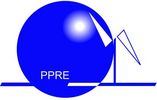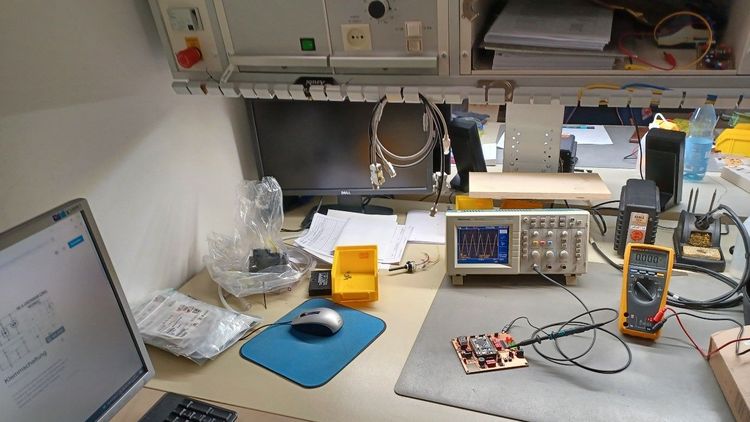Data loggers are an indispensable tool in energy service supplying systems for long term observation of the performance of such systems - both in teaching and in system analysis. However, professional data loggers are expensive and possibly too restricted for special cases. Therefore, Dedan Kimathi University / Centre for Biomass Energy Studies in Kenya and University of Oldenburg / Postgraduate Programme Renewable Energy in Germany jointly develop a universal, open source data logging system meeting their requirements in teaching as well as in system analysis.
The Postgraduate Programme Renewable Energy (PPRE) @ University of Oldenburg perspective:
Since some years, PPRE has been developing and using data logging systems (DL) based on open source hardware and software in the laboratories, replacing the old x-t recorders. The DL proved to be highly reliable under laboratory conditions. Access to open source, economic and modular data logging systems (similar to the ones currently used by PPRE) would support learning institutions and practitioners. This is not the general case in the moment, as there are not enough resources and time available to design and explore open source resources.
Data loggers are at the core of data acquisition systems, which are required to monitor renewable energy facilities and their environment. Data loggers are in charge of taking measurements with sensors, pre-process and record them. These measurements improve the capacity to monitor and analyse the performance of systems, and are required to learn from them, understand and control their operation, as well as detect failures and design improvements. There are several data loggers available in the market, with a cost range from hundreds to thousands of Euros; some of them with proprietary technology and others open source. While the most advanced equipment is expensive and inaccessible for small projects or institutions, the least costly equipment does not offer enough precision, configurability, or require multiple adaptation work and therefore a large learning curve. Access to reliable and affordable data logging systems, both in learning and testing facilities, is essential to learn from renewable energy systems, expand their installation and monitor their effective operation.
For these reasons, we are working on a project to document, improve and share our experience with DL. The aim of the project is to facilitate and simplify the use of already available open source hardware for renewable energy data logging applications. The project is part of the Grüne Bürger Energie für Africa (https://gruene-buergerenergie.org/de/) from the GIZ, and PPRE works together with the Dedan Kimathi University in Kenya. Grüne Bürger Energie für Africa is an initiative that aims to support the extension of sustainable energy in Africa.
Part of the DL improvements within the project, includes to learn together from the experience and local use cases of Kenya. The results will include the hardware and software documentation for the designed DL, with the aim of reducing the learning curve to implement economic data logging systems, and support renewable energy learning activities. The resulted DL do not aim to replace professional and industrial DLs, but get inspired by them. They have to be economic, simple, reliable, flexible to manufacture, program, install and repair.
The perspective from Centre for Biomass Energy Studies @ Dedan Kimathi University of Technology :
Dedan Kimathi University of Technology (DeKUT), Kenya, prides itself in being at the forefront of energy research. We have various ongoing projects focusing on studying renewable energy to be able to provide clean and affordable energy solutions. Some of these projects involve solar and micro hydro energy. In reaching our goal, the most vital aspect is access to real-time accurate data that enables us to measure and analyse performance of our projects, their workability, applicability as well as detect failures and design improvements. This allows us to give necessary recommendations and solutions to involved stakeholders. The use of data loggers has served a big role in helping us achieve our goals. Data loggers are devices that monitor and record changes and conditions over a pre-determined period allowing those conditions to be measured, documented and analysed. They accomplish this with the help of sensors that collect data, microprocessors that capture and record the data and are able to measure temperature, humidity, carbon dioxide, pressure, PH etc.
However, data loggers within the market come with the challenge of high cost and unavailability. As a research centre, using data loggers that are open source and with high precision, configurability and adaptation is preferred in order to help us map out the whole data acquisition process. Consequently, we have opted to shift to the option of designing data loggers in collaboration with the University of Oldenburg (UOL), Germany, which can be configured to serve various applications at an affordable price. This process has involved selecting hardware devices, sensors like the current transformer and humidity sensor. After having several consultative meetings between the two universities, we decided to use the Arduino Uno as our microcontroller. We are now in the process of building the code to configure the data logger. We hope to use this logger in a few of our projects including:
- Solar Drying, to monitor solar irradiance, temperature and humidity;
- Power Consumption, to monitor power consumed by machines in our laboratories; and last but not least in
- Training. It will be possible to collect real time measurements over long and short periods of time, at selected intervals.
The data logger will ultimately go through testing to ensure it is working correctly and to calibrate it accordingly.
We anticipate to have more partnerships as this has been a learning process. The success of this logger will open up opportunities for institutions to collaborate to achieve common goals, even in future. This will in turn create room for integrated innovation.
Authors: Adrián Jimenez (Postgraduate Programme Renewable Energy @ UOL), Abigail Wairua (Centre for Biomass Energy Studies @ DeKUT).
Acknowledgement: The project is funded by Green People’s Energy for Africa https://gruene-buergerenergie.org/en/ and managed by GIZ.


